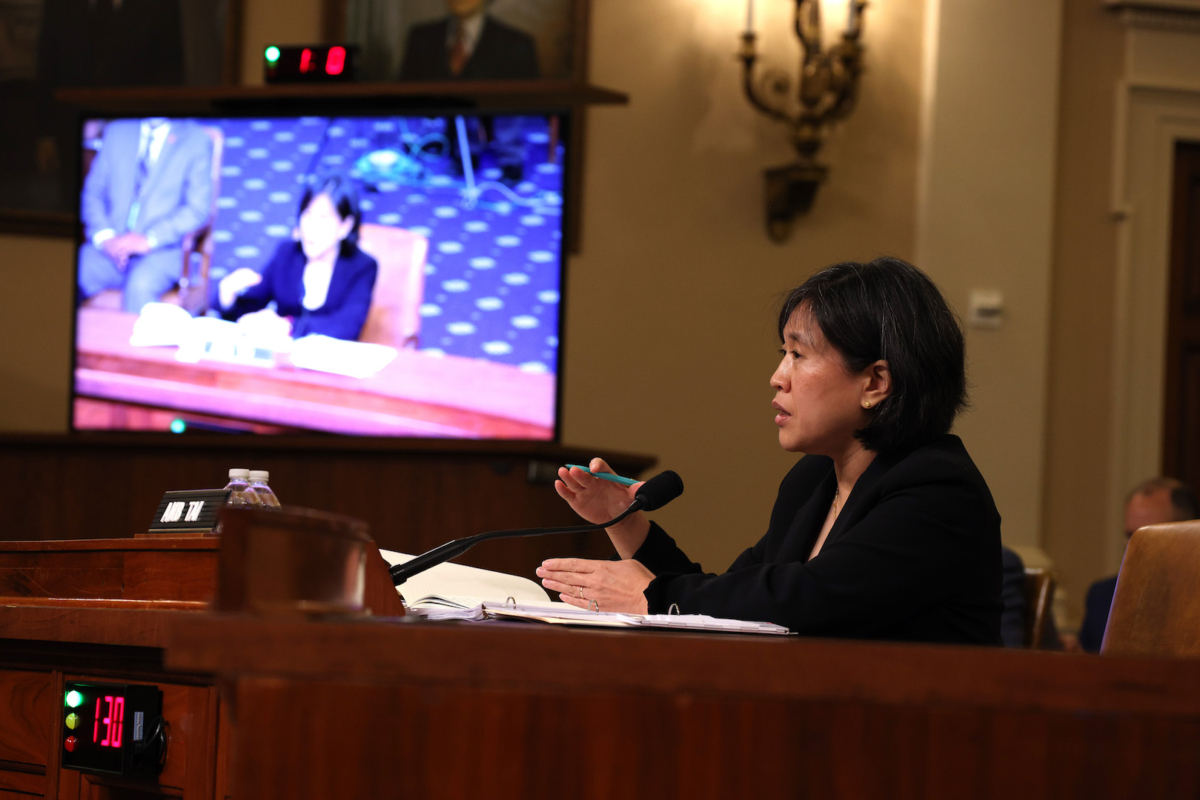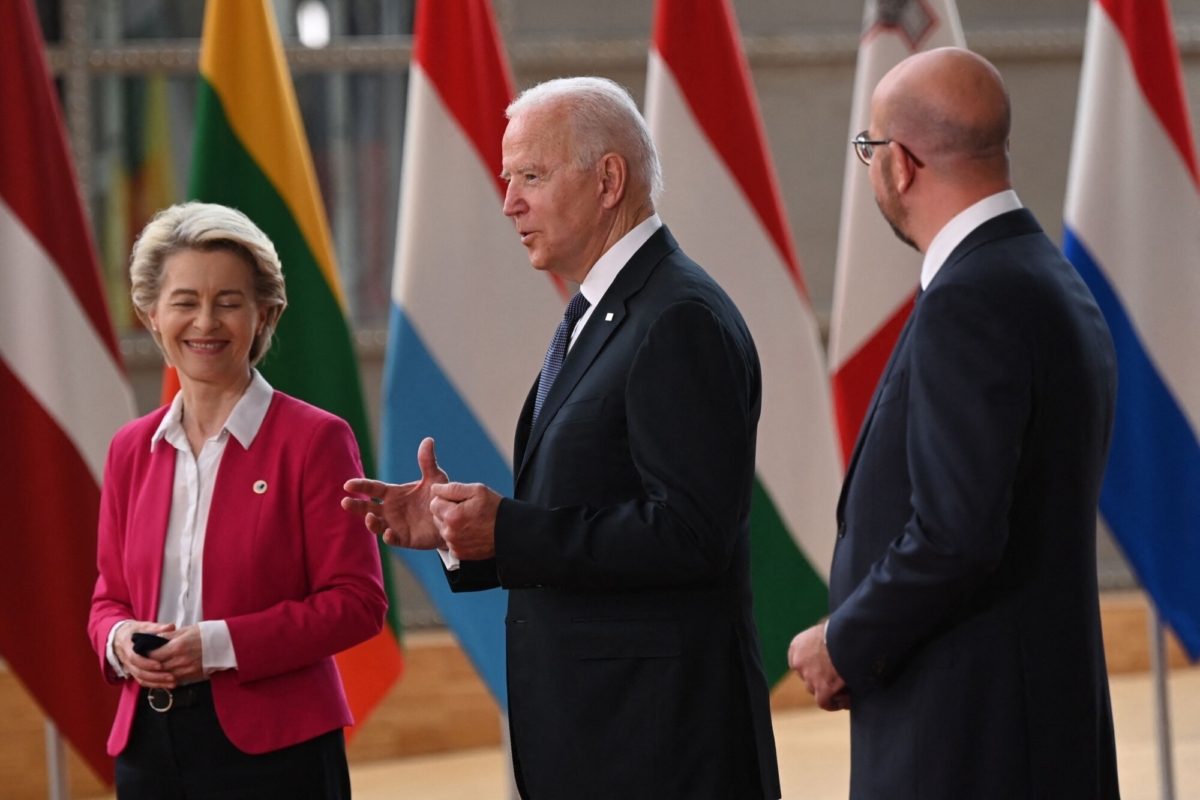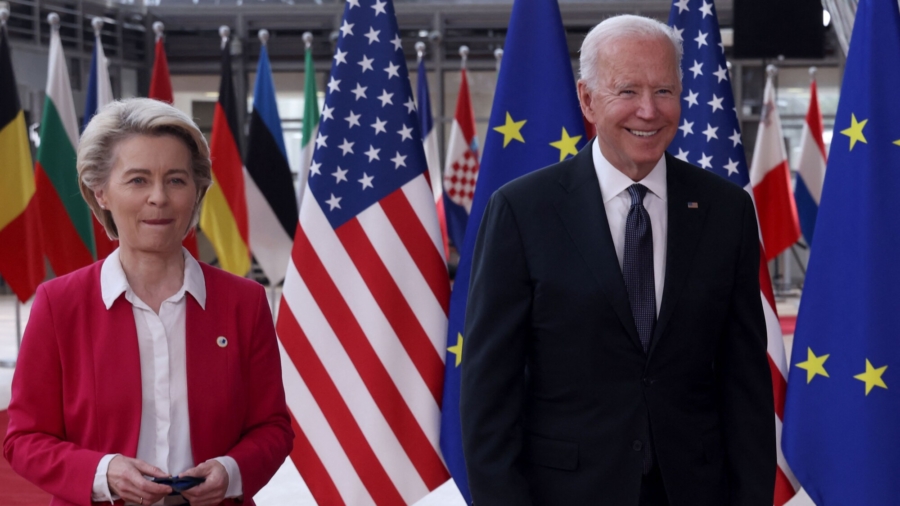President Joe Biden agreed with European Union (EU) leaders on Tuesday to end a trade dispute over aircraft subsidies by suspending tariffs to Boeing and Airbus, officials said.
“Today, the United States and the European Union made a major breakthrough in the Boeing-Airbus trade dispute, which has lasted more than 16 years,” Biden said in a White House statement. “Both the U.S. and EU agreed to suspend our tariffs for five years, and we committed to ensuring a level playing field for our companies and our workers.”
The transatlantic dispute over aircraft subsidies was already set to reach an agreement earlier this year. The deal will officially become effective on July 11—phasing out tariffs worth $11.5 billion for a period of five years.
The dispute over aircraft subsidies has dragged on since 2004 and intensified last year after the U.S. Trade Representative’s Office (USTR) said in February 2020 it would increase tariffs on aircrafts imported from the EU by 5 percent.
U.S. Trade Representative Katherine Tai told reporters the United States could reimplement the tariffs if companies are not able to “compete fairly” with those in Europe.

“Today’s announcement resolves a long-standing irritant in the U.S.-EU relationship,” Tai said, as Biden met with EU leaders in Belgium. “Instead of fighting with one of our closest allies, we are finally coming together against a common threat,” she added, referring to China.
“We agreed to work together to challenge and counter China’s non-market practices in this sector in specific ways that reflect our standards for fair competition. This includes collaboration on inward and outbound investment and technology transfer.”
Besides the talking point over aircraft subsidies, Biden also discussed with the leaders of the three Baltic countries—Estonia, Latvia, and Lithuania—the “emerging security challenge posed by China,” and expressed his gratitude to the leaders for the steps that they have taken to support a trusted 5G platform and to not accept China’s Huawei technology in their systems.
“The U.S. and EU will work together in specific ways that reflect our high standards, including collaborating on inward and outbound investment and technology transfer,” Biden said. “It’s a model we can build on for other challenges posed by China’s economic model.”
The European Union also mentioned to Biden during the NATO Summit it wants to reach a deal on metal tariffs, but European Commission President Ursula von der Leyen noted that the priority was aircraft subsidies.

Biden hasn’t mentioned any plans so far to lift tariffs on steel and aluminum in the EU—which were imposed by his predecessor, President Donald Trump. Trump said at the time the tariffs are part of an effort to protect American industry and workers from what he described as unfair international competition.
Airbus, which is headquartered in France but also has centers in Germany and Spain, welcomed the agreement.
“This will provide the basis to create a level playing field which we have advocated for since the start of this dispute. It will also avoid lose-lose tariffs that are only adding to the many challenges that our industry faces,” an Airbus spokesperson said in a statement.
The Associated Press contributed to this report.

